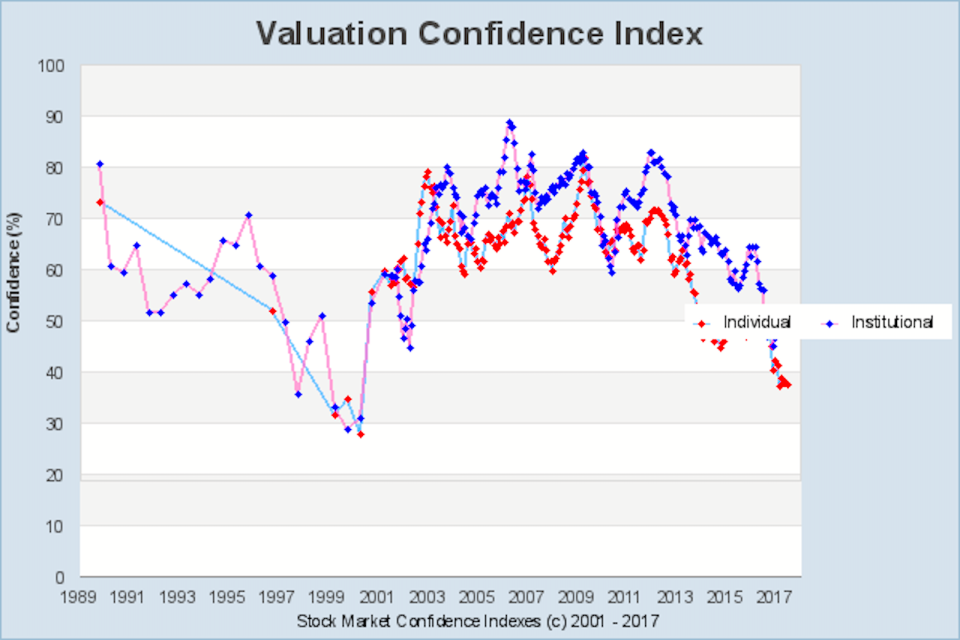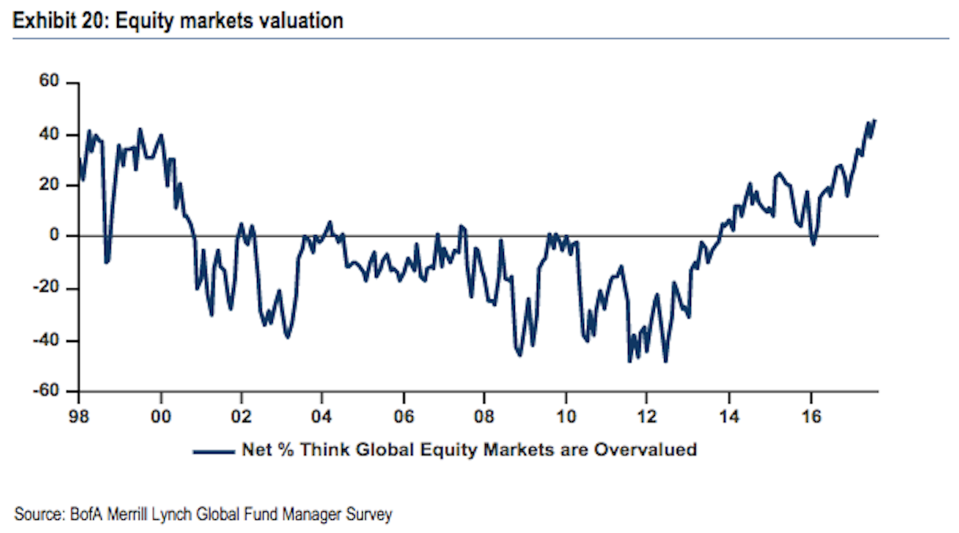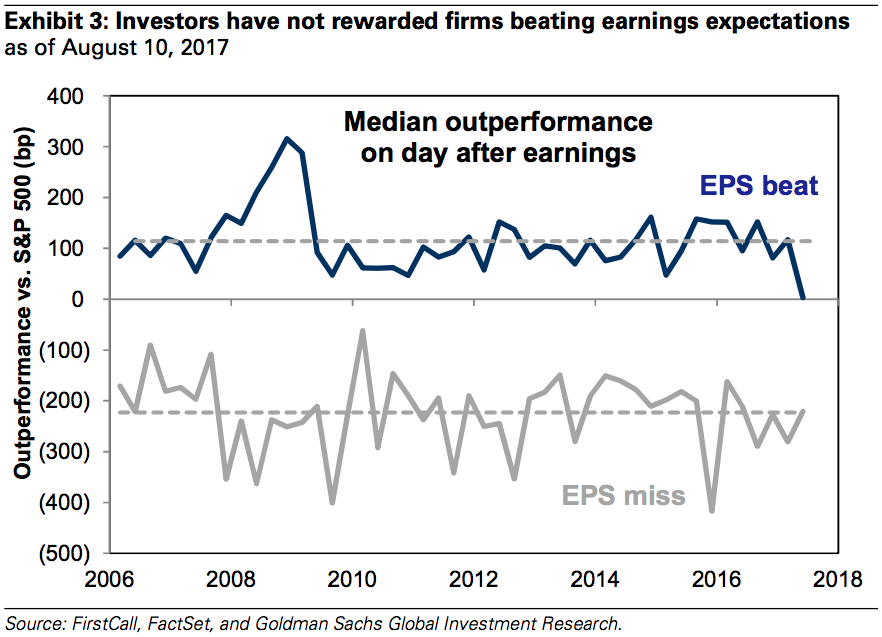Investors feel crummy about how expensive they've made stocks
Stock market experts have been warning investors that valuation levels have been troublingly high. Some would even argue that mania has taken over and investors are blissfully buying stocks at ever increasing prices.
But two surveys suggest that investors are very much aware of the high price they’re paying for stocks. In other words, they’re actually increasingly nervous as they buy stocks.
First, we have the Yale Valuation Confidence Index, which captures the percent of individual and institutional investors who believe the market is not overvalued. It’s overseen by Nobel prize–winning economist Robert Shiller.

“[The index] reached its lowest right there in 1999. Right before the dot-com bubble burst,” Shiller observed in a recent interview with Yahoo Finance. “People were not confident that the market was well-priced.”
Yale’s website argues that “this may have been a significant source of downward instability in the market that helped bring on the market crash after 2000.”
“Now we’ve come back to another low-valuation confidence,“ Shiller continued. “I can tell you that people think the market is highly valued and what they think matters for their behavior. So it looks like we might be more back to 1999 than we are making out.”
The second indicator comes from Bank of America Merrill Lynch, which regularly surveys about 180 financial professionals in the money management industry. They posed a similar question about valuation.

“The percentage saying equity markets are overvalued rose to 46% in August, a record high,” Bank of America Merrill Lynch’s Michael Hartnett observed.
And so, we have a situation where it seems investors are contradicting themselves by buying stocks despite being aware of the fact that they’re paying a high price. It may seem crazy, but it shouldn’t be unexpected. We all know that lack of physical activity increases the risk of a heart attack, but we also know that we’re not engaging in enough physical activity.
This could be coming to an end
What’s driving this behavior? For individuals, maybe it’s that fear of missing out. For institutions, maybe it’s the pressure to perform or at least not lag the market by too much. Who knows.
What’s troubling is that there may be evidence that investors are running out of steam. Consider Q2 earnings season. Analysts from Goldman Sachs, Bank of America Merrill Lynch, and FactSet all recently flagged a troubling development: Investors have stopped rewarding good news.

Specifically, investors lately haven’t consistently bid up stocks for companies that were reporting better-than-expected earnings. Just this week, Walmart (WMT) reported good numbers yet shares fell. Last week, the red-hot Nvidia (NVDA) and yet the stock tumbled.
For months, if not years, we’ve heard that investors have been climbing the “wall of worry,” which is to say they’ve been bidding up prices despite negative risks. But is this narrative over? We’ll know in hindsight. For now, we’ll be vigilant and watch as the warning signs pile up.
–
Sam Ro is managing editor at Yahoo Finance.
Read more: